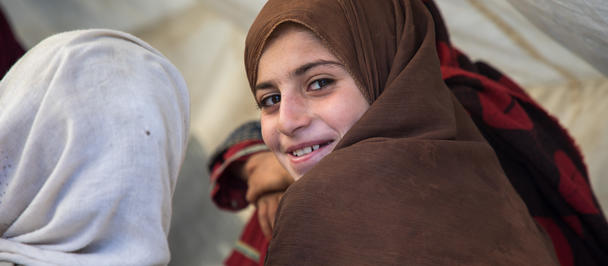Investing in solidarity: Refugee-hosting countries deserve greater support
December 12, 2023
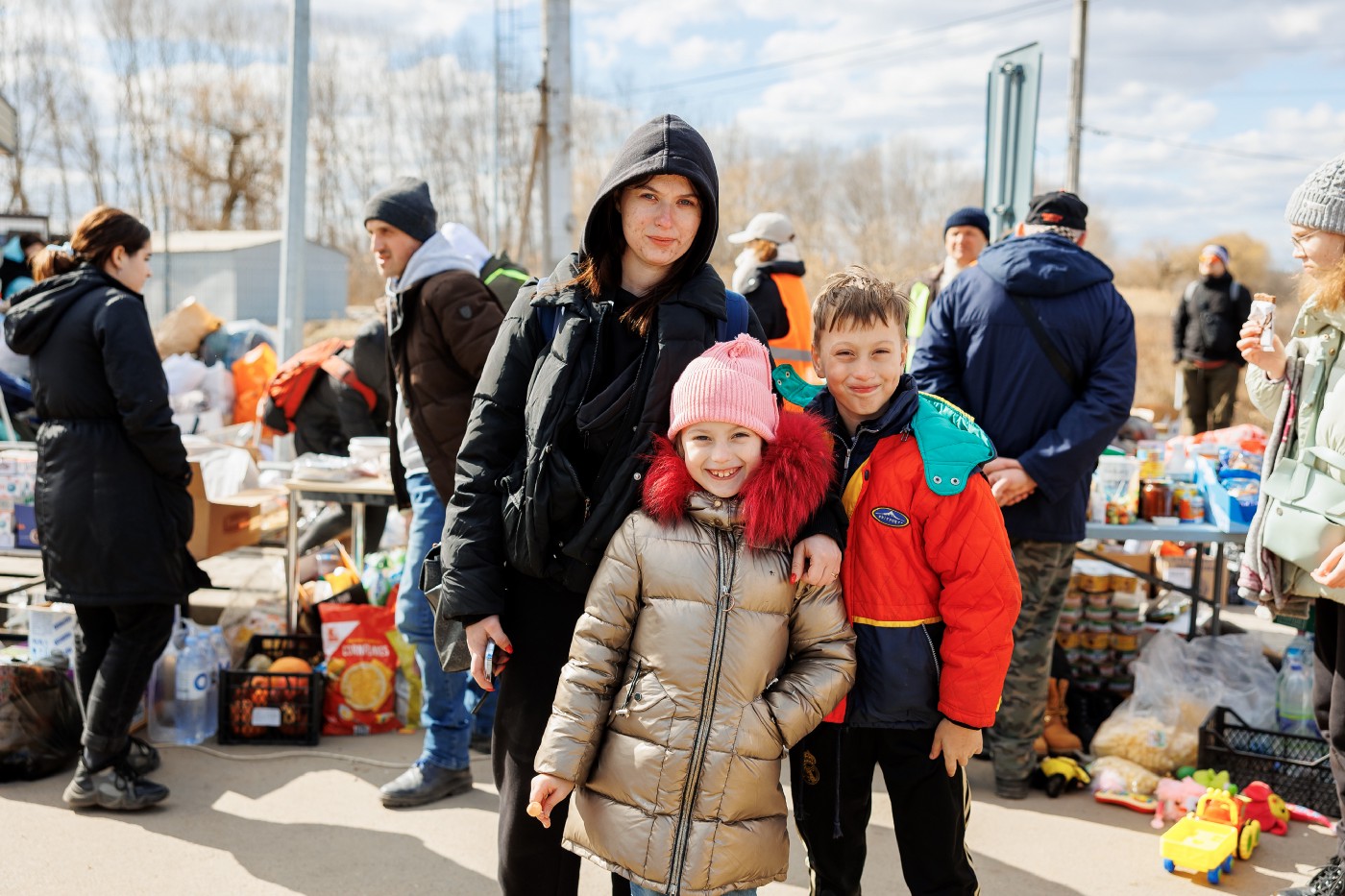
As the second Global Refugee Forum convenes, conflicts around the world have pushed vast numbers of people to flee their homes and cross international borders in search of safety.
Ghos-ti is the ancient Indo-European word from which we get the English for both ‘guest’ and ‘host’. It covers the reciprocal relationships inherent in hospitality, with both the guest and the host playing important roles of giving and receiving.
In my work for the UN, the communities I have spent time with have always been generous hosts, however modest their living conditions were. In India, where I recently served as UNDP Resident Representative, the hospitality culture extends beyond simply hosting visitors. It is a way of living that exemplifies virtues like generosity, kindness, and empathy. Since early November I am based in New York and enjoy the full flow of a month of celebrations from Diwali to Thanksgiving, Hanukkah and Christmas. Wherever you are around the world, hospitality is universal.
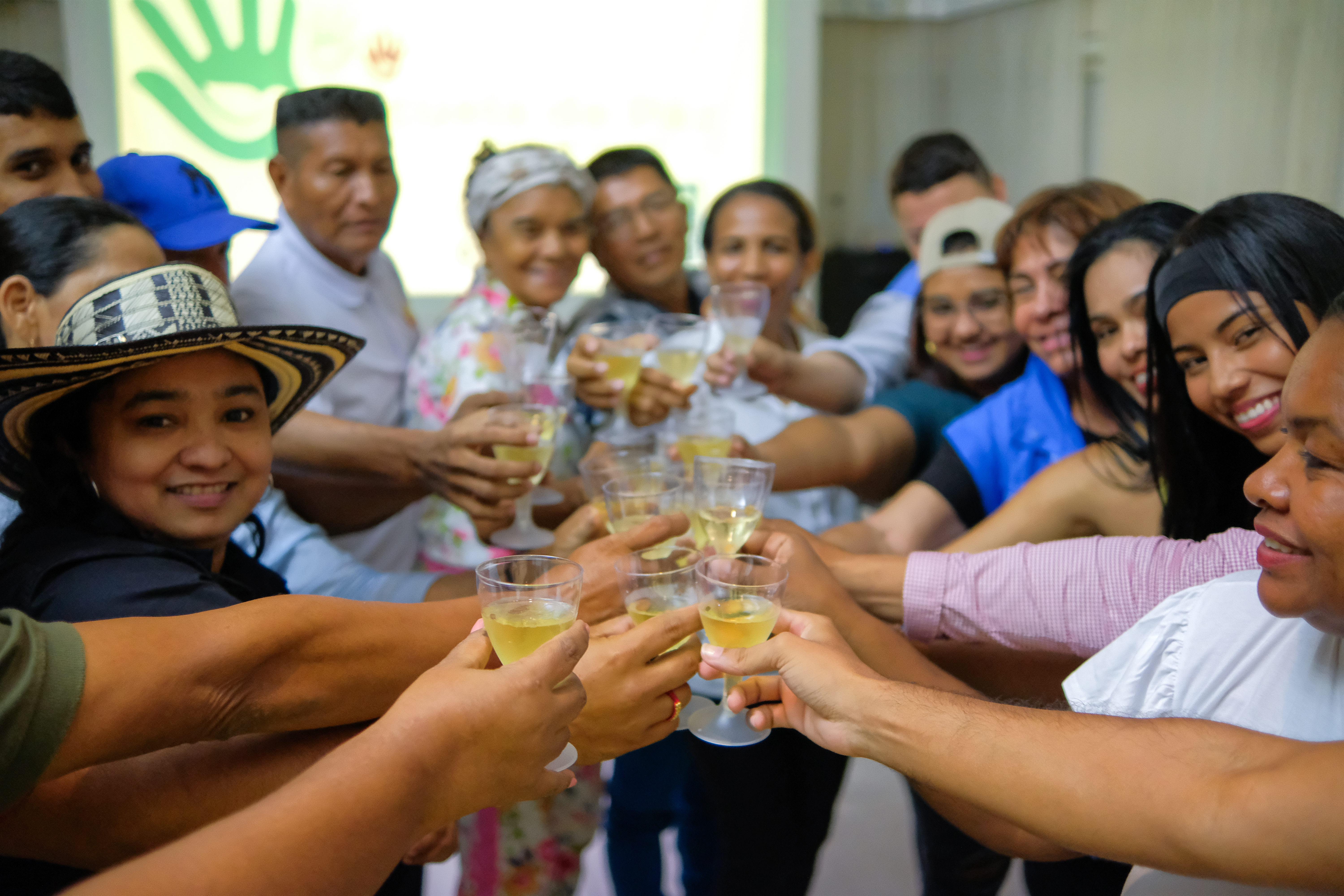
Around the world, it is often the communities who have very little that are the most generous. Host communities and authorities need support to ensure that their hospitality does not come at a cost to their own development gains.
There is no greater act of goodwill than welcoming refugees forced to flee their countries because of conflict, violence and persecution. Refugees have frequently experienced extreme suffering, catastrophic family losses and trauma. They have often lost their belongings and incomes. They come in search of the most basic of human rights – protection, food, clean water, healthcare, education and shelter.
Yet, many refugee-hosting countries lack the necessary infrastructure and services to meet the immense needs. It may come as a surprise that about 80 percent of the world’s refugee population is hosted by countries that together represent only 19 percent of the world’s income. When conflicts or disasters spark the large-scale movement of people, developing countries that receive refugees are put under high pressure and can end up relying on international aid to meet their needs.
While development partners’ support for refugees remains generous, most funding goes to humanitarian responses. Between 2020 and 2021, only 34 percent of the total Official Development Assistance for refugee situations in developing countries was for development financing, 6 percent on peace and 3.6 percent in support of refugees returning to countries of origin. As new crises emerge, donor fatigue sets in and funding becomes overstretched, host countries are left with the economic, social, political and human cost of caring for refugees. The moral commitment host countries are showing needs to be shared and supported by the international community.
'Close to two thirds of refugees live in displacement for years, many even indefinitely. Without longer-term development support for countries hosting refugees or those welcoming back returnees, the cycle of aid dependency and poverty continues.'
While it is essential that refugees receive assistance to meet their immediate needs, a humanitarian response is not sufficient to support sustainable solutions for refugees and the communities that host them. Refugees need jobs, education for displaced children, and the legal frameworks and policies that can make all this possible. Host communities and authorities need support to ensure that their hospitality does not come at a cost to their own development gains.
Close to two thirds of refugees live in displacement for years, many even indefinitely. Without longer-term development support for countries hosting refugees or those welcoming back returnees, the cycle of aid dependency and poverty continues.
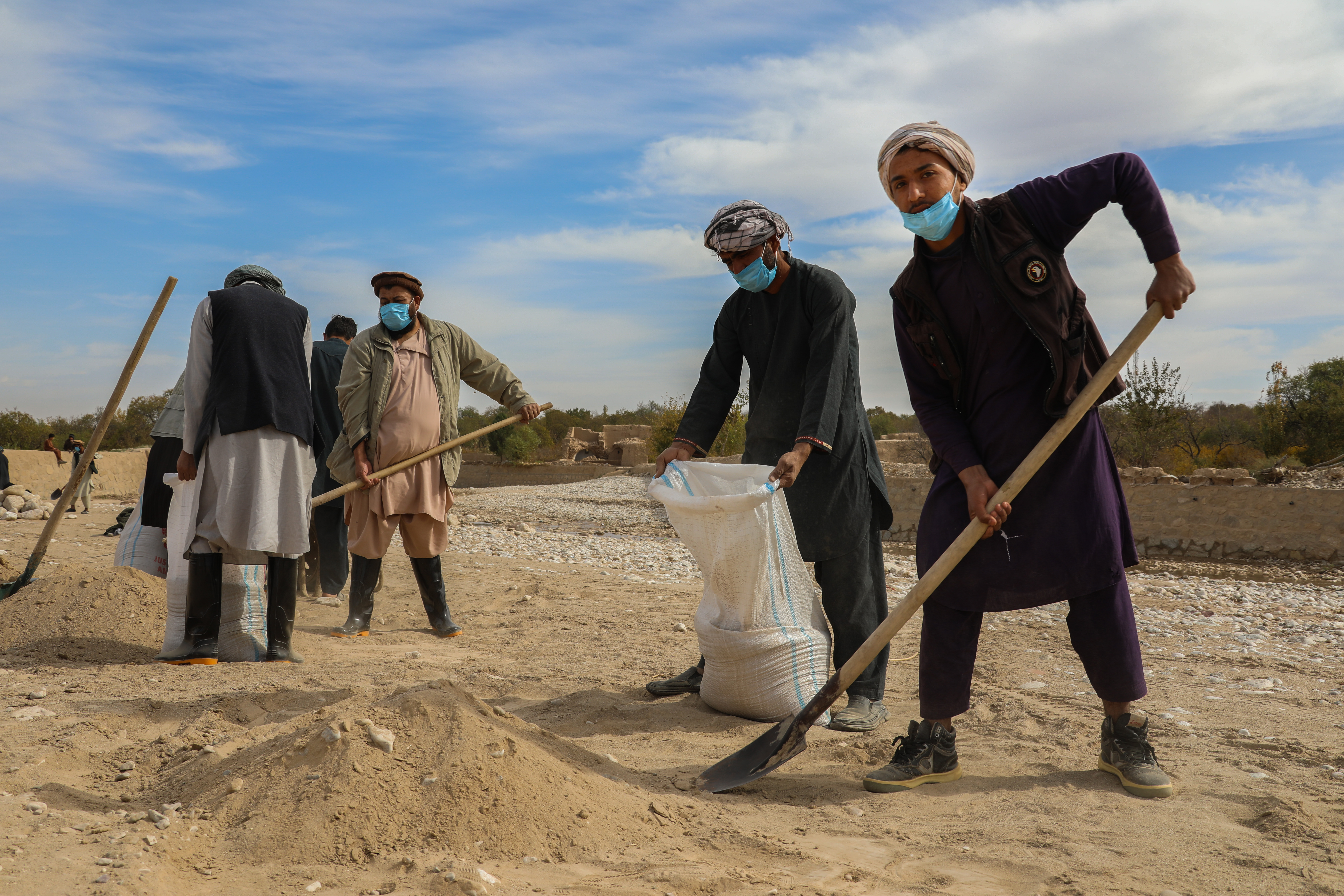
In Afghanistan, internally displaced persons, returnees and local communities work together to repair key development infrastructure.
The second Global Refugee Forum takes place from 13 to 15 December in Geneva. Since the last Forum in 2019, conflicts in Afghanistan, Democratic Republic of the Congo, Ethiopia, Myanmar, Sudan and Ukraine have pushed even greater numbers of people to flee their homes and cross international borders in search of safety. At the end of June 2023, the number of refugees, asylum seekers and other people in need of international protection reached 47.8 million.
Reversing these trends requires more investment or the world faces new and protracted displacement. The Forum aims to put progress back on track by building international solidarity, increasing financing for refugee situations and creating conditions for sustainable return. Towards these objectives, UNDP is scaling up its support to over 30 countries.
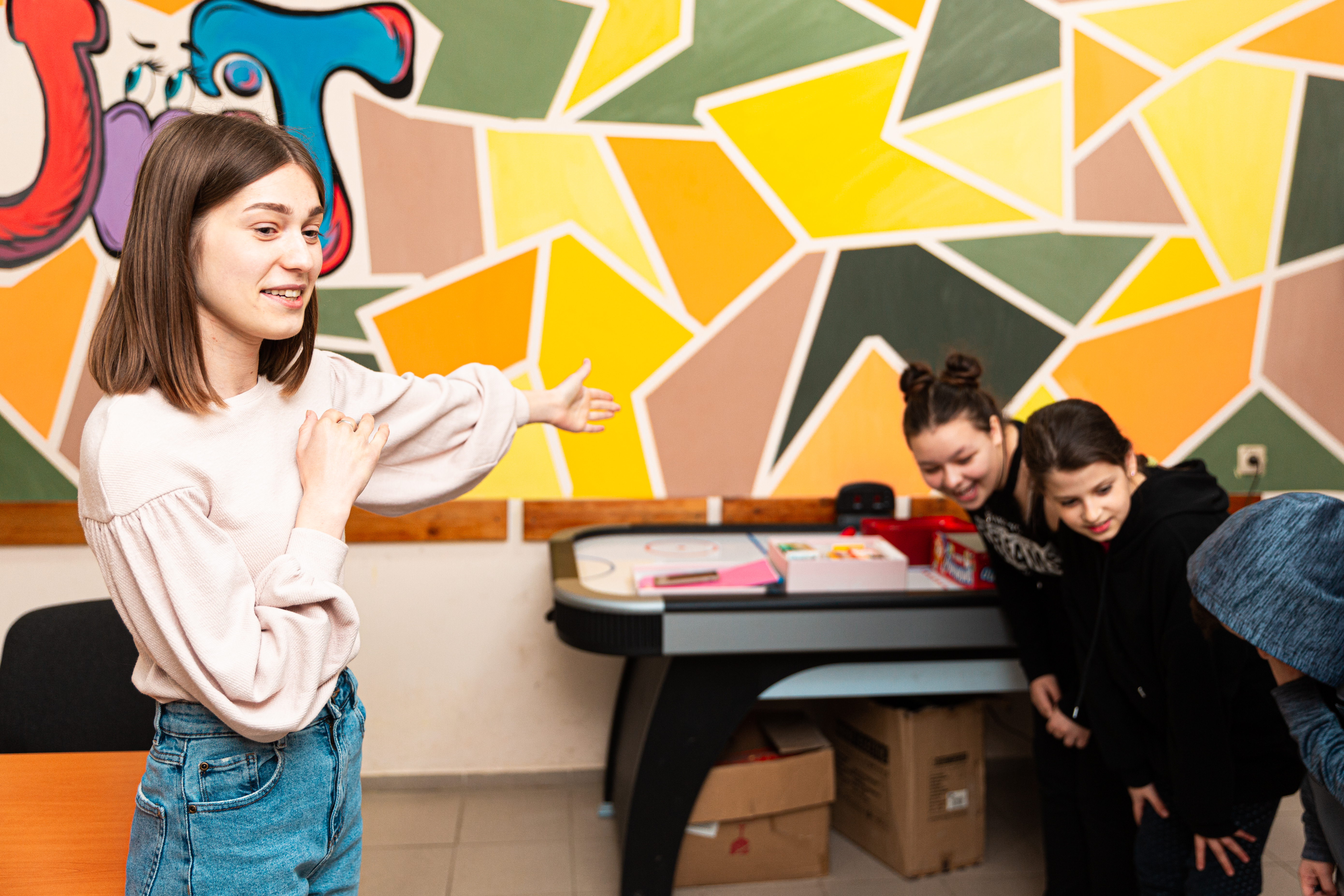
Before the war in Ukraine, Irina was planning to work as a psychologist; she now uses her training to help fellow refugees in Moldova.
In Afghanistan for instance, UNDP’s Area-Based Approach for Development Emergency Initiatives (ABADEI) has reached almost 10 million people with the kind of help that can prevent forced displacement and meet the needs of returnees, such as new agricultural tools, seeds and irrigation canals for farmers; jobs for women and men who want to rebuild their own communities, and new skills for women businesses owners.
In Moldova, UNDP and its partners have provided Ukrainian refugees with legal counselling, while training paralegals and social workers to better respond to the specific needs of refugees, most of them being women and children.

Host communities in Moldova organized summer camps that brought together refugee children from Ukraine and children from local communities, while skills training for refugee workers helped them fill gaps in the local economy.
With UNHCR, UNDP co-leads the Regional Refugee and Resilience Plan (3RP) to the Syria Crisis. The 3RP brings together around 270 UN and civil society partners to address refugees’ needs while strengthening the resilience of institutions, host communities and refugees.
Building on its engagements with governments in host countries, as well as humanitarian, development and peace partners, UNDP is pledging to strengthen national and local capacities for coordination and management, service delivery, livelihoods and job creation, and social cohesion help mobilize timely, predictable, and sustainable development financing, while also preventing forced displacement through peacebuilding and climate action.
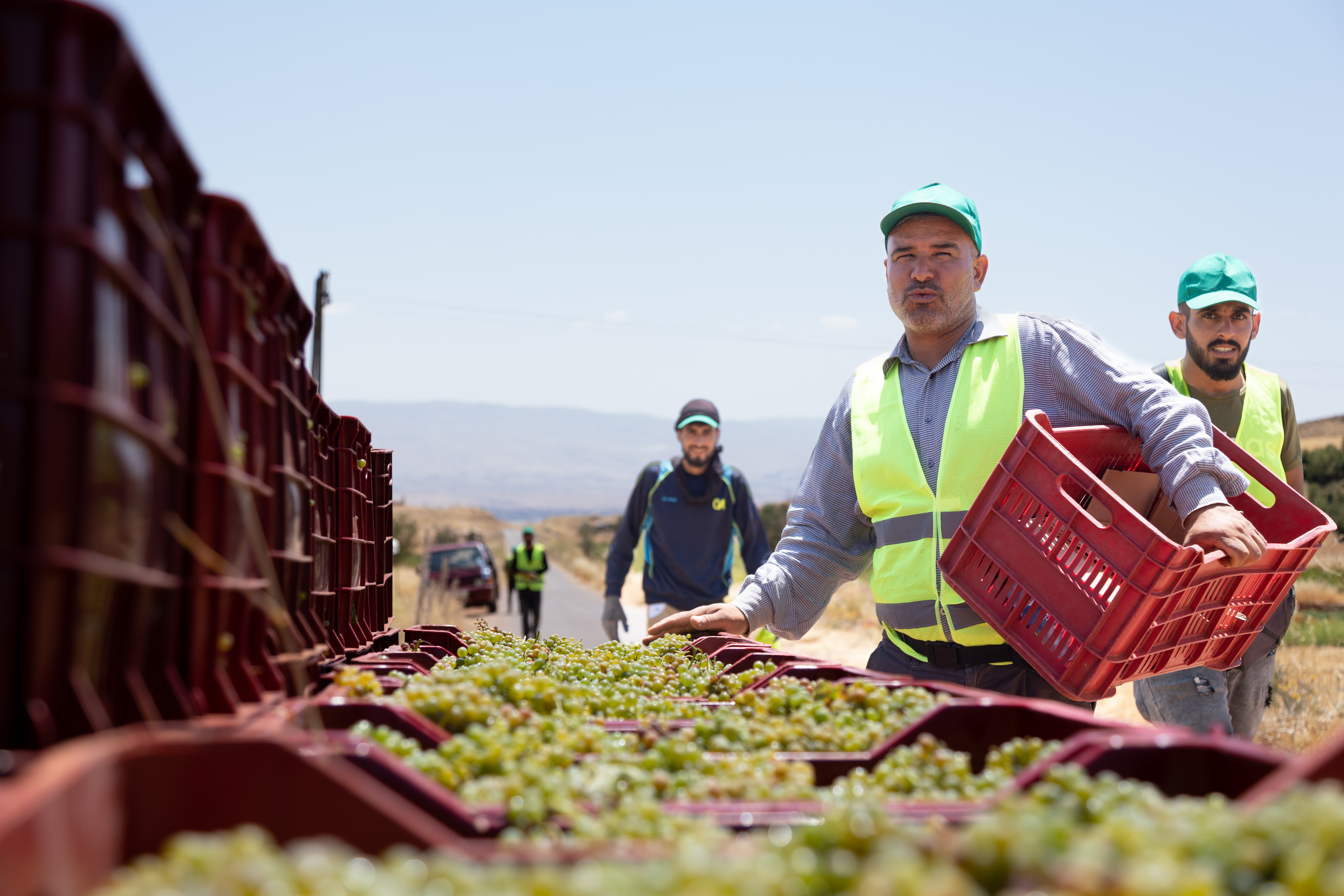
When refugees feel safe and can access health care, education and labour markets, they can give back to the communities hosting them.
For our Indo-European ancestors, Ghos-ti represented an incredibly important exchange relationship. Today, welcoming the stranger remains the best of the human spirit. Countries need support to ease the pressure of hosting large numbers of refugees and create the conditions for newcomers to contribute to sustainable development.
When refugees feel safe and can access health and care services, education, and labour markets, they can give back to the communities hosting them as teachers, labourers, health workers, climate activists, entrepreneurs and more.
Hospitality is a gift. Creating the conditions where refugees not only survive but thrive is key to both their future and that of the communities hosting them.

 Locations
Locations



